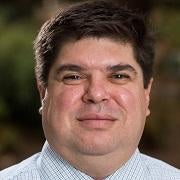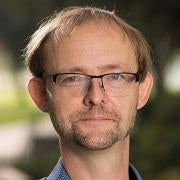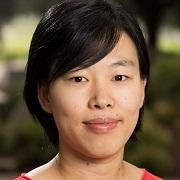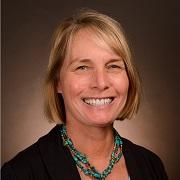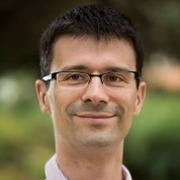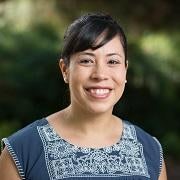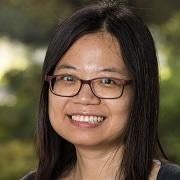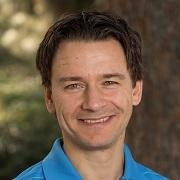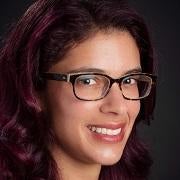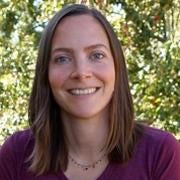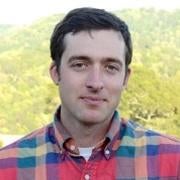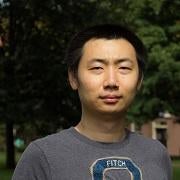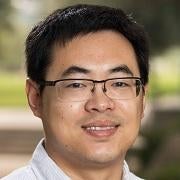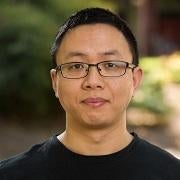
Also see pictures from the 2017 New Faculty Reception.
Garret Anderson
Garret Anderson is an assistant professor of neuroscience in the Department of Molecular, Cell and Systems Biology. He earned his Ph.D. at the University of Minnesota, followed by postdoctoral research at Stanford University in molecular neuroscience. His research interests are in investigating the molecular basis for the specificity of synaptic assembly and functionality, and how these processes are altered in neurodevelopmental and neuropsychiatric disorders.
Michael G. Anderson
Michael G. Anderson, associate teaching professor of physics in the Department of Physics and Astronomy, earned his Ph.D. in physics at the University of California, Davis. His research interest is in the area of physics education research. He works on improving laboratory instruction methods as well as refining large classroom lectures via technological innovation and the implementation of pedagogical techniques.
Boris Baer
Boris Baer, professor for pollinator health in the Department of Entomology, studied Ecology at the University of Zurich and earned his Ph.D. at the Swiss Federal Institute of Technology (ETH Zurich). His research interests include the immunity, reproduction and ecology of social insects, especially honeybees. He is part of an international network of partners in Australia, China and Panama to develop solutions to counter recent declines in insect pollinators, which has become of global concern given our dependence on these animals for food production. To do this, he uses classical field based approaches from evolutionary ecology and behavioral ecology in combination with lab based techniques such as proteomics to unravel the molecular basis of traits of interest. These include research programs that unravel the functioning of the insect immune system with the idea to find bees that are better able to resist widespread and damaging parasites or the study of the reproductive biology of bees to support breeding programs for increased health. He conducts research in close collaboration with industry partners such as beekeepers to facilitate the transfer of research outcomes in order to provide novel tools of integrative bee health management.
Sihem Cheloufi
Sihem Cheloufi, assistant professor of biochemistry in the Department of Biochemistry, was awarded her Ph.D. in Genetics at Stony Brook University, New York in affiliation with Cold Spring Harbor Laboratory. After her postdoctoral training at the Massachusetts General Hospital Cancer Center and Center for regenerative Medicine, Sihem moved to the UCR Biochemistry Department to establish her independent research group. Her interests are in the area of embryonic development, stem cell and cancer biology. She is currently working on understanding the mechanisms controlling cellular plasticity by focusing on the role of chromatin and non-coding RNA molecules in packaging the genome and regulating gene expression in health and disease. Sihem’s goal is to use this knowledge for the purposes of regenerative medicine and improving cancer therapy.
Weitao Chen
Weitao Chen, assistant professor of mathematics in the Department of Mathematics, earned her Ph.D. in mathematics at the Ohio State University. Her research interests are in the areas of numerical analysis, scientific computing, shape optimization of elliptic type eigenvalue problems, and computational systems biology with emphasis on cell polarity, stem cells, growth control on tissues and organs, and stochastic dynamics in patterning. She develops mathematical models for complex biological systems, designs accurate and efficient numerical algorithms for dynamical systems to understand fundamental principles in developmental biology.
Janet Franklin
Janet Franklin, distinguished professor and distinguished biogeographer in the Department of Botany and Plant Sciences, earned her Ph.D. in geography at University of California - Santa Barbara. Her research interests are conservation biogeography, global change biology, species distribution modeling, plant community ecology, spatial ecology, landscape ecology, and geographic information science. Her work addresses the impacts of human-caused landscape change especially on forest, shrublands and other plant communities, and the wildlife that depends on these habitats.
Börge Hemmerling
Börge Hemmerling, assistant professor of physics in the Department of Physics & Astronomy, earned his Ph.D. in physics at the Leibniz University of Hannover in Germany. His research interests are in the area of atomic physics, with a focus on ultracold molecules and trapped molecular ions. He aims to control complex molecules at the single quantum level with the goal to study and control chemical reactions at very low temperatures and in degenerate molecular quantum gases. In order to enter the ultracold regime, he works on the design and implementation of a laser-cooled cryogenic buffer-gas beam for a large set of molecules.
Stephen Kane
Stephen Kane, associate professor of planetary astrophysics in the Department of Earth Sciences, earned his Ph.D. in astrophysics at the University of Tasmania. His research primarily involves the detection, characterization, and habitability of planets orbiting other stars (exoplanets) using data from a variety of groundbased and space-based telescopes. His research topics include planet discovery, atmospheric studies, orbital dynamics, Venus and Earth analogs, conditions for planetary habitability, biosignatures and geosignatures, and telescope design for upcoming space-based exoplanet missions.
Loralee Larios
Loralee Larios, assistant professor of plant ecology in the Department of Botany and Plant Sciences, earned her Ph.D. in environmental science, policy and management at the University of California-Berkeley. Her research links population and community ecology to invasion biology and restoration ecology and provides insights to how environmental change may influence plant invasions and ecosystem management. She uses a combination of field experiments, observational studies and population modeling to guide restoration and management practices.
Ying-Hsuan Lin
Ying-Hsuan Lin, assistant professor of environmental toxicology in the
Department of Environmental Sciences, received her Ph.D. in Environmental
Sciences and Engineering from the University of North Carolina at Chapel Hill.
Her research interests lie in understanding the sources, composition, and
formation mechanisms of atmospheric aerosols, and how they influence regional
air quality, human health, and the climate system. She works on bridging
atmospheric chemistry, analytical chemistry, toxicogenomics, and systems
biology approaches to investigate the health effects of particulate air pollution.
Jernej Murn
Jernej Murn is an assistant professor in the Department of Biochemistry. He
obtained his Ph.D. in molecular biology at the University of Ljubljana, Slovenia,
and completed postdoctoral training at Cold Spring Harbor Laboratory and
Harvard Medical School. His research focus is on understanding how control of
gene expression at the RNA level allows cells to make decisions, respond to the
environment, and communicate with one another, as well as how misregulation
of RNA processing leads to cellular dysfunction and disease, especially
neurological disorders and cancer. His studies integrate genome-wide and
computational approaches with traditional biochemistry and genetics to allow
for comprehensive description of RNA.
Paul Nabity
Paul Nabity, assistant professor of plant-insect ecology in the Department of
Botany and Plant Sciences, earned his Ph.D. in plant biology at the University
of Illinois in Urbana-Champaign. His research interests are in the areas of
physiological ecology, ecological genomics, and the adaptive nature of inducible
plant phenotypes, with various applications ranging from predicting species
interactions and understanding plant stress to increase food and ecosystem
productivity. He works to advance understanding of complex plant phenotypes,
how they evolved, and how they can be managed.
Lauren Ponisio
Lauren Ponisio is an assistant professor of ecological networks in the
Entomology Department. She earned her Ph.D. from University of California
Berkley, and her masters from Stanford University. Lauren studies the
mechanisms operating in complex systems, specifically ecological communities,
that underlie diversity maintenance. She also develops tools for reproducible
science, including the R package NIMBLE for hierarchical modeling.
William Porter
William Porter, assistant professor of atmospheric dynamics and modeling
in the Department of Environmental Sciences, earned his Ph.D. in applied
physics at Portland State University. His research interests focus on the
intersection of atmospheric processes and human activity, both in terms of
anthropogenic influences on air quality and climate, as well as the feedbacks of
those influences on human health. Through the synthesis of numerical models,
atmospheric observations, and statistical methodologies, William explores these
relationships with the goal of improving our understanding of atmospheric
processes, leading to better tools for policy and planning.
Nicole Rafferty
Nicole Rafferty, assistant professor in the Department of Evolution, Ecology, and Organismal Biology, earned her Ph.D. in zoology at the University of Wisconsin-Madison. Her research interests are in the areas of community ecology, global change, and pollination ecology. In particular, she is studying how shifts in the timing of life history events and range shifts alter species interactions. She uses a combination of long-term and historical data, experimental manipulations, and observations of natural variation to understand how plant-pollinator interactions are likely to be affected by climate change.
Houston Wilson
Houston Wilson, assistant cooperative extension specialist in the Department of Entomology, earned his Ph.D. in agricultural entomology and ecology at UC Berkeley. His research focuses on the development and evaluation of integrated pest management strategies for tree nuts and stone fruit with an emphasis on biological control, plant-insect interactions, landscape ecology, insect movement, and regional population dynamics. His lab is located at the Kearney Agricultural Research and Extension Center in Parlier, CA.
Hongdian Yang
Hongdian Yang, assistant professor in the Department of Molecular, Cell and Systems Biology, earned his B.S. in Physics at Nanjing University (2006) and Ph.D. in Biophysics at University of Maryland College Park (2011). During doctoral training, he performed interdisciplinary research of systems neuroscience and statistical physics to determine the dynamical properties of network-scale neuronal activity. He did postdoc work at Johns Hopkins University (2012-2016) with the goal to understand the cellular and circuit mechanisms of sensory perception. At UCR, his lab employ multi-disciplinary approaches, including state-of-the-art in vivo electrophysiology and calcium imaging, optogenetics, mouse behavior, computational modeling and theory, to link cellular-level physiology to circuit dynamics and network analysis in behaving animals, with the ultimate goal to understand the organizational principles of neuronal ensembles and the basis of information processing by single neurons and neural circuits in health and disease.
Haofei Zhang
Haofei Zhang, assistant professor of chemistry in the Department of Chemistry, earned his Ph.D. at University of North Carolina, Chapel Hill. His research focuses on understanding the multiphase chemical and physical processes of atmospheric organic aerosol transformation. His group uses controlled laboratory studies and analytical techniques to identify and quantify gas- and particle-phase chemical species that are important in atmospheric organic aerosol and elucidate chemical mechanisms of the formation and evolution of organic aerosol.
Zhenghe Zhang
Zhenghe Zhang, assistant professor of mathematics in the Department of Mathematics, earned his Ph.D. in Mathematics at Northwestern University. His research interests lie across dynamical systems, spectral theory, and mathematical physics. He works on problems in the spectral analysis of Schrödinger operators using tools from dynamical systems.

